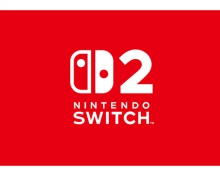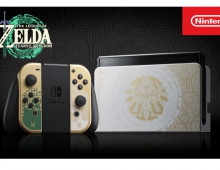
Nintendo wins piracy case against Hong Kong firm
Japanese videogame maker Nintendo said on Thursday it has won one of its "most significant anti-piracy judgments ever" against a Hong Kong firm that sold devices capable of copying its games and putting them on the Internet for limitless downloading.
In the ruling, a Hong Kong judge ordered Lik Sang International on May 29 to pay an interim amount of HK$5 million (US$641,000) in damages, Nintendo said.
A Lik Sang representative could not immediately be reached for comment. Kyoto-based Nintendo had sought US$20 million in damages in its original complaint for lost revenues in 2001 and 2002, in a case that underscored the problem of rampant software piracy in China and adjacent Hong Kong.
The device at the heart of the complaint costs about US$45 and is capable of bypassing security features in Nintendo Game Boy games to extract their software, said Jodi Daugherty, director of anti-piracy for Nintendo of America Inc.
Once the software is extracted, it can be put on cards for use in other Game Boy consoles or uploaded to the Internet for limitless downloads throughout the world, she said.
Copied games typically sell for anywhere from US$5-15 each, compared with US$25-45 for legal products.
"This was an important case for Nintendo in battling Internet piracy at its source," Daugherty told Reuters in a phone interview from the United States. "We're continuing to take aggressive actions in China."
Rampant video game piracy has kept the world's major players out of China. Most sell their consoles at a loss and make up money through high-margin game sales.
Xbox maker Microsoft and Nintendo have so far avoided the market, where pirated versions of their games can sell for as little as 10 yuan (US$1.21) each.
The world's other major player, Sony Corp, maker of the PlayStation, tried to launch in China earlier this year but was indefinitely delayed amid a mass of government red tape.
Following the recent Hong Kong ruling, Nintendo believes the cheap copying devices, which were manufactured in China, are no longer on the market, Daugherty said.
Nintendo estimates that it and its partners lost about US$650 million in sales last year due to piracy, while the entire industry lost more than US$3 billion.
Daugherty said Chinese trademark enforcement authorities had helped Nintendo conduct about three-quarters of its 125 raids IN China last year as the new World Trade Organization member starts to take intellectual property protection more seriously.
She said raids in 2002 were about double those in 2001, and are expected to go up further in 2003.
"Our piracy trends have changed," she said. "It used to be that a lot of the manufacturing was done in Taiwan. Then it's shifted, so now we're being more aggressive in China."
A Lik Sang representative could not immediately be reached for comment. Kyoto-based Nintendo had sought US$20 million in damages in its original complaint for lost revenues in 2001 and 2002, in a case that underscored the problem of rampant software piracy in China and adjacent Hong Kong.
The device at the heart of the complaint costs about US$45 and is capable of bypassing security features in Nintendo Game Boy games to extract their software, said Jodi Daugherty, director of anti-piracy for Nintendo of America Inc.
Once the software is extracted, it can be put on cards for use in other Game Boy consoles or uploaded to the Internet for limitless downloads throughout the world, she said.
Copied games typically sell for anywhere from US$5-15 each, compared with US$25-45 for legal products.
"This was an important case for Nintendo in battling Internet piracy at its source," Daugherty told Reuters in a phone interview from the United States. "We're continuing to take aggressive actions in China."
Rampant video game piracy has kept the world's major players out of China. Most sell their consoles at a loss and make up money through high-margin game sales.
Xbox maker Microsoft and Nintendo have so far avoided the market, where pirated versions of their games can sell for as little as 10 yuan (US$1.21) each.
The world's other major player, Sony Corp, maker of the PlayStation, tried to launch in China earlier this year but was indefinitely delayed amid a mass of government red tape.
Following the recent Hong Kong ruling, Nintendo believes the cheap copying devices, which were manufactured in China, are no longer on the market, Daugherty said.
Nintendo estimates that it and its partners lost about US$650 million in sales last year due to piracy, while the entire industry lost more than US$3 billion.
Daugherty said Chinese trademark enforcement authorities had helped Nintendo conduct about three-quarters of its 125 raids IN China last year as the new World Trade Organization member starts to take intellectual property protection more seriously.
She said raids in 2002 were about double those in 2001, and are expected to go up further in 2003.
"Our piracy trends have changed," she said. "It used to be that a lot of the manufacturing was done in Taiwan. Then it's shifted, so now we're being more aggressive in China."





















